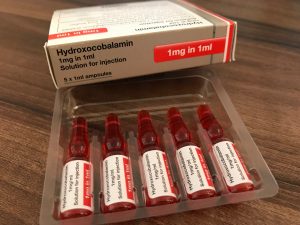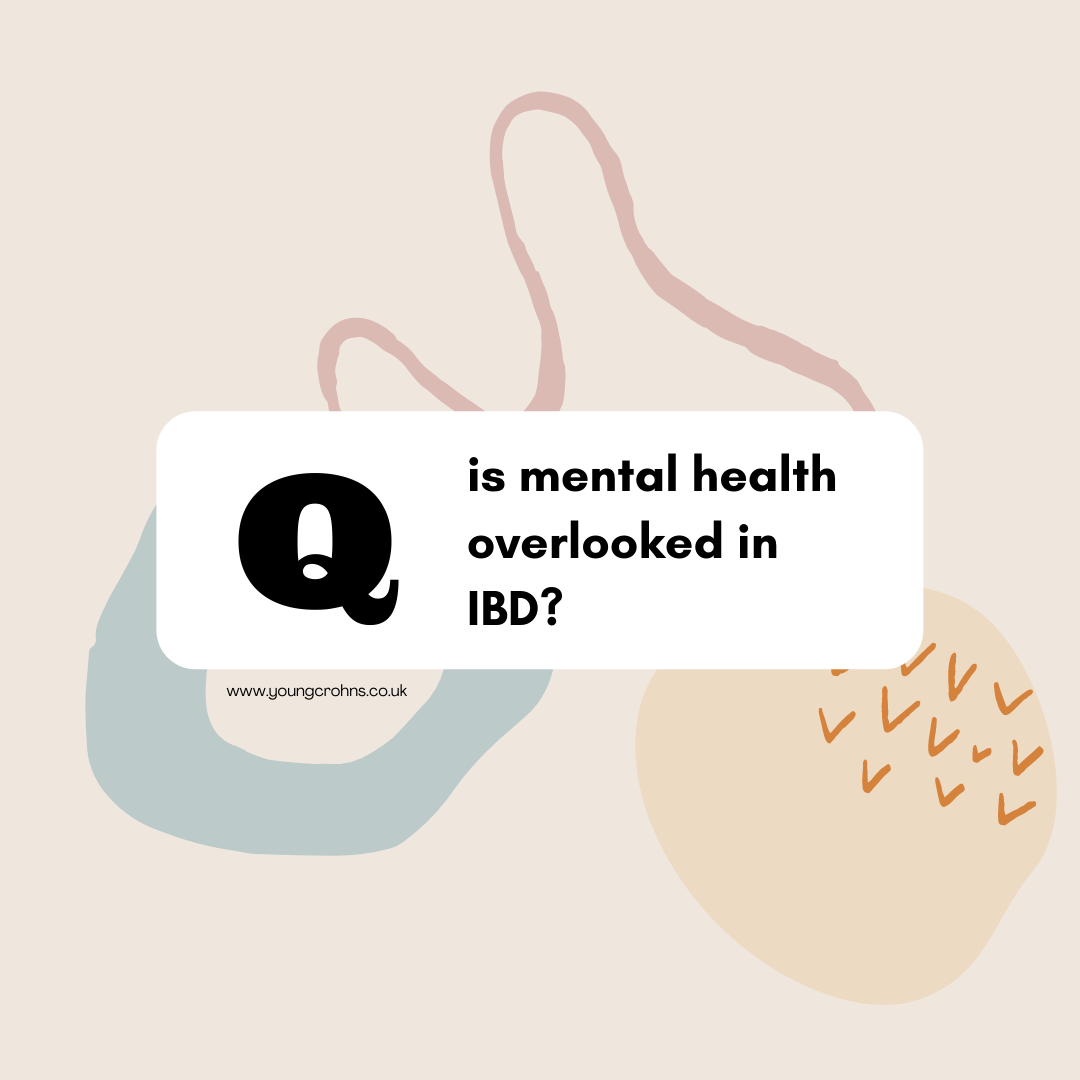
The What and Why: Vitamin B12
Disclaimer: This information is based on my own research into this particular aspect of IBD as well as some personal experience and should not be used as medical advice or a diagnostic tool. The suggestions given within are taken from sources laid out in the references header. If you seek advice regarding the things you experience within your own disease, please contact your IBD team for medical advice.
If you are looking for the entire ‘What and Why’ series, you can find them all here.
Teeny tiny vials of energy

It was when I was in the throes of being assessed for surgery, we discovered that removal of my terminal ileum – my first surgery; right hemicolectomy – would mean I would need Vitamin B12 injection following my recovery.
What is Vitamin B12?
It is an important vitamin needed in the body to help keep your nervous system healthy. It is what helps create new cells within your body, for not only growth and repair but for general maintenance. Whilst it is produced in the liver, it is absorbed in the small intestine. B12 is found in animal products such as shellfish and meat, as well as in fortified food products and dietary supplements.
How do you know your deficient?
Symptoms include tiredness, lethargy, breathlessness, headaches, heart palpitations, feeling faint, altered taste and loss of appetite. Your GP might also call a lack of B12 “Folate Deficiency Anaemia” as the lack of B12 affects the haemoglobin in the red blood cells, as is the major presentation of anaemia. This is determined by 1) a blood test for your Vitamin B12 level as well as your RBC count and haemoglobin levels and by 2) identifying the cause – this could be either medication related or disease related.
What are the causes?
There are a number of problems that can lead to deficiency, including:
- Pernicious anaemia – where your immune system attacks healthy cells in your stomach, preventing your body from absorbing vitamin B12 from the food you eat; the most common cause of B12 deficiency in the UK
- Lack of these vitamins in your diet – this is usually uncommon, but can occur if you have a vegan diet, are follow a fad diet or have a generally poor diet for a long time.
- Medication such as anticonvulsants and proton pump inhibitors (PPIs) can affect how much of these vitamins your body absorbs.
- Digestive conditions for which surgery is needed; such as resection of the small bowel especially the terminal ileum in Crohn’s Disease.
Vitamin B12 deficiency is more common in older people; affecting around 1 in 10 people aged 75+ and 1 in 20 people aged 65 – 74
How is it treated?
This is different for whether it is diet related or not.
If your vitamin B12 deficiency is caused by a lack of the vitamin in your diet, you may be prescribed vitamin B12 tablets to take every day between meals. Alternatively, you may need to have an injection of Hydroxocobalamin twice a year. Good sources of B12 can be found in meat, fish such as salmon and cod, milk and other dairy products and eggs. If you are following a vegan diet and your B12 is low, good sources include yeast extract (Marmite), as well as some fortified breakfast cereals and soy products.
If your vitamin B12 deficiency isn’t dietary, you’ll usually need to have an injection of Hydroxocobalamin every three months for the rest of your life. Adding in food sources of B12 will also help maintain your levels too.
My experience
I started my Vitamin B12 injections in April following a conversation with my Gastroenterologist in March. I had, at that point, fully recovered from my subtotal colectomy I had in August 2016. And following the removal of terminal ileum in May 2016, it was time to begin treating my B12 deficiency.
 My main symptom of this deficiency has been fatigue. Leading up to my second injection in early July, I suffered with my fatigue greatly in the 10 days leading up to my injection. I felt utterly exhausted and completely draining of my usual energy and personality. I was struggling to sleep and when I did, it was broken and light. I was struggling with the heat too, so dehydration and fatigue made for a horrible mix. But even just 24 hours after my second injection, I felt lighter, like my fatigue was melting away and my energy levels rose. I know that I need to continue to top up my levels with good food sources, especially as we move forward to the next injection – they come around so fast!
My main symptom of this deficiency has been fatigue. Leading up to my second injection in early July, I suffered with my fatigue greatly in the 10 days leading up to my injection. I felt utterly exhausted and completely draining of my usual energy and personality. I was struggling to sleep and when I did, it was broken and light. I was struggling with the heat too, so dehydration and fatigue made for a horrible mix. But even just 24 hours after my second injection, I felt lighter, like my fatigue was melting away and my energy levels rose. I know that I need to continue to top up my levels with good food sources, especially as we move forward to the next injection – they come around so fast!
This is one of the things I will need to learn to cope with for the rest of my life.

Sources:
NHS Choices: B12 Deficiency
Very Well: Vitamin B12 and IBD
IBD Relief: Deficiencies in IBD




2 Comments
Deficiencies with IBD •
31/03/2021 at 15:22
[…] and Vitamin B12 are high on the priority list here too. Vitamin B12 is explained in more detail here, whilst electrolyte imbalance is important because it helps to regulate the heart and […]
"Are supplements helpful in IBD?" •
09/10/2021 at 13:00
[…] If you enjoyed this post check out Iron Deficiency & IBD, The What and Why: Calcium, The What and Why: Vitamin D and The What and Why: Vitamin B12 […]